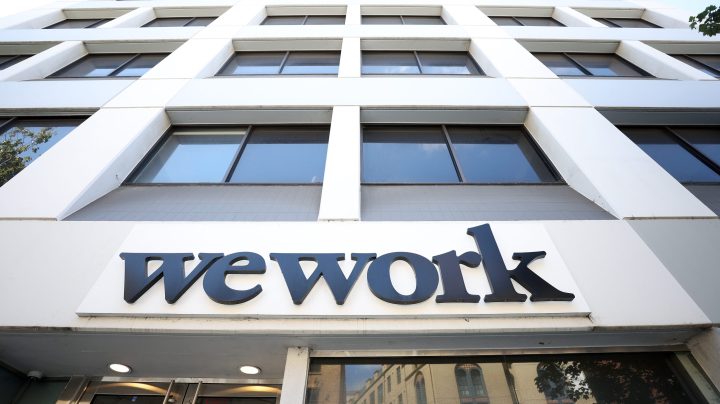
Co-working spaces are not what they used to be. Companies are trying to adjust.
Co-working spaces are not what they used to be. Companies are trying to adjust.

WeWork, once a mighty and seemingly unstoppable co-working company, has continued its downward spiral. It’s now warning investors that it’s getting closer to bankruptcy.
And that made us wonder: Is WeWork an anomaly or has the pandemic squashed the whole co-working industry?
Sam Rosen remembers the good ol’ days, about a decade or so ago when he opened up a co-working space in Chicago. “It was a lot simpler back then. It was pretty easy to fill up and build our first space up successfully,” he said.
Today, Rosen is the CEO of Deskpass, a platform that connects companies and co-working spaces in nearly 200 cities. His client base has tripled since before the pandemic, but he said their needs have changed. They’ll rent by the day or hour for meetings with specific teams or clients.
“So instead of spending money for an office that’s only used 20%, only paying for space when they use it,” he said.
Co-working spaces have changed too, Rosen noted. They’re opening in suburbs instead of central business districts; they’re also being built into mixed-use facilities at gyms and social clubs.
“They’re in a partnership with the landlord or the owner, where they both share in the risk and they both share in the upside,” he said.
That’s not how co-working spaces have traditionally operated, according to Green Street analyst Dylan Burzinski. WeWork, for instance, took on long-term leases.
“And it suffered by not being able to achieve high occupancies when they went out to lease that to tenants,” he said.
It’s hard to know exactly how co-working spaces are faring, Burzinski said, as most are privately owned. But it’s no secret that office landlords in general are having a tough time.
“We are coming out of what was a crisis-driven execution of flexibility,” said Cali Williams Yost, a flexible work consultant. “And we are still reimagining how, when and where we’re going to work.”
When it comes to the office, we still haven’t settled into the new normal.
There’s a lot happening in the world. Through it all, Marketplace is here for you.
You rely on Marketplace to break down the world’s events and tell you how it affects you in a fact-based, approachable way. We rely on your financial support to keep making that possible.
Your donation today powers the independent journalism that you rely on. For just $5/month, you can help sustain Marketplace so we can keep reporting on the things that matter to you.


















